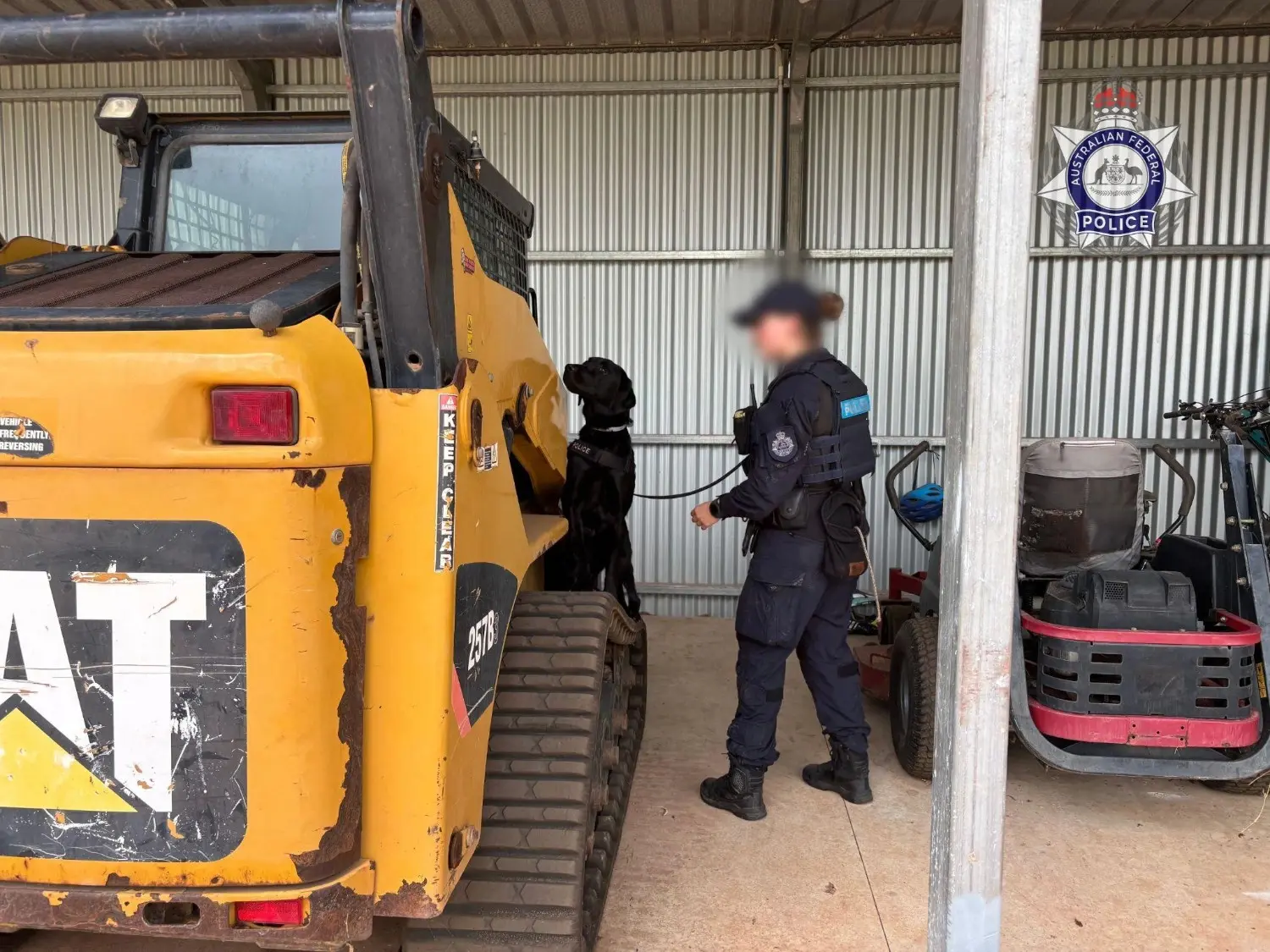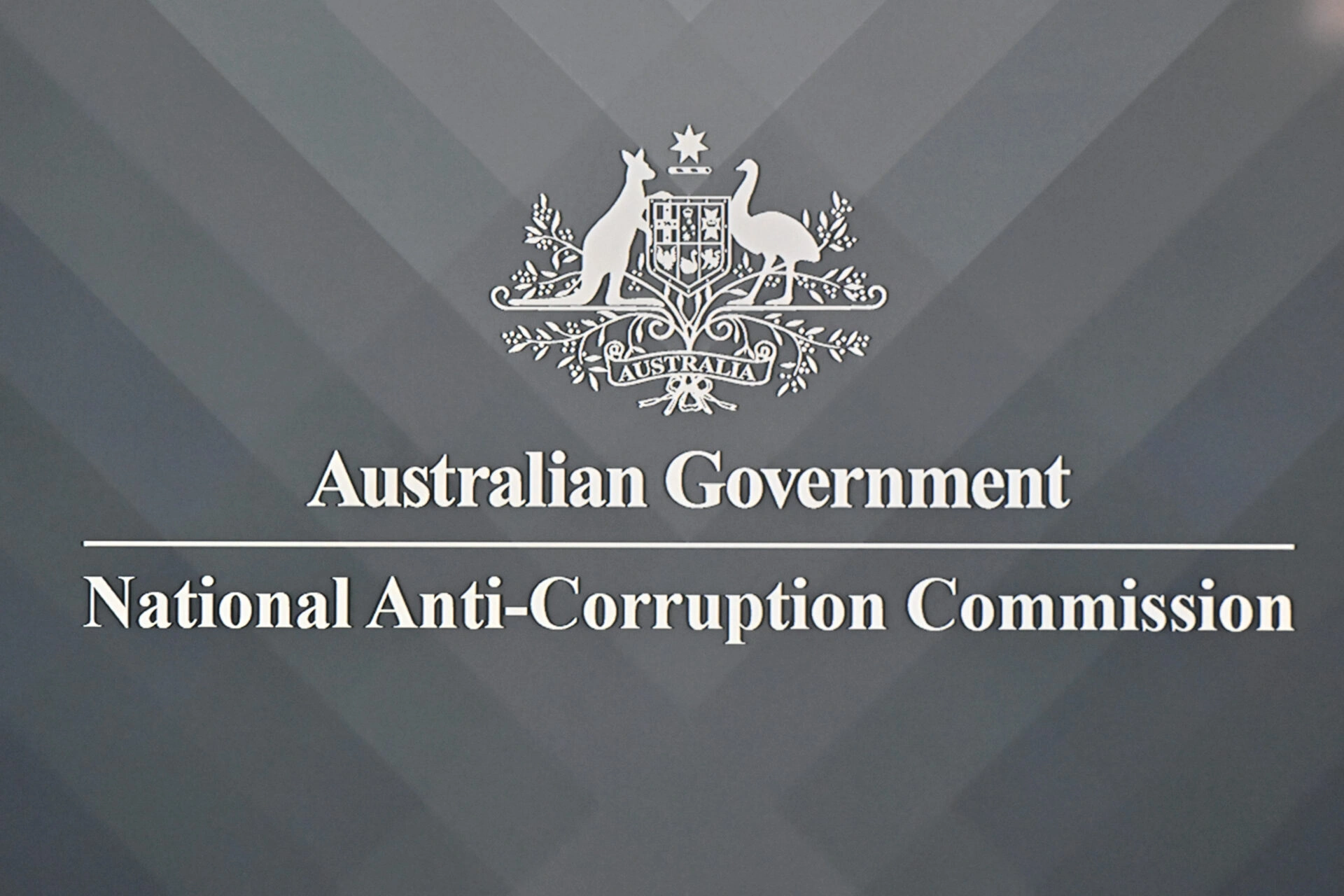Three Northern Territory residents faced Darwin Local Court on Monday in what authorities describe as one of the most significant procurement corruption cases to hit Australia’s defence sector.
The charges centre on nearly $71 million in building contracts allegedly influenced through abuse of public office. A federal defence employee, his spouse, and directors of a local construction firm stand accused of orchestrating a conspiracy to secure lucrative government work.
The Anatomy of Operation Panton Hill
The Australian Federal Police launched Operation Panton Hill in March 2025 after the Department of Defence flagged irregularities during an internal audit. What started as routine compliance checking soon revealed a web of alleged corruption stretching across years of contract awards.

AFP officers executed search warrants across Darwin
Authorities allege the Commonwealth employee exploited his position to steer building contracts worth almost $71 million to a Northern Territory company and its subsidiary. The three co-accused allegedly conspired to dishonestly benefit from the arrangement at taxpayers’ expense.
AFP Superintendent Greg Davis pulled no punches in his assessment.
“Defrauding the Commonwealth is a crime that prevents public funds from being used to support the wider Australian community,” Davis said. “We will not hesitate to investigate suspected criminal activity to bring offenders to justice.”
What Investigators Found
On Friday, 14 November 2025, AFP officers supported by Defence and the National Anti-Corruption Commission (NACC) executed simultaneous search warrants across greater Darwin.
The raids netted a trove of evidence:
- Electronic devices including mobile phones and laptops
- Documentation related to contracts and payments
- A firearm
- Jewellery
- $30,000 in cash
- A small quantity of suspected cocaine
All three accused appeared at Darwin Local Court on Monday, 17 November 2025. They face serious charges carrying maximum penalties up to 10 years imprisonment.
The Commonwealth employee faces an additional charge of abuse of public office under section 142.2(1) of the Criminal Code. This offence carries a maximum five-year sentence.

How Defence Procurement Became a Corruption Target
The alleged NT defence corruption scandal highlights vulnerabilities in Australia’s procurement system. The Commonwealth public sector spends tens of billions annually on contracts. Complex procurements involving high-value deals, specialised expertise, and intricate governance structures create ripe conditions for exploitation.
A NACC spokesperson confirmed that detecting and investigating corruption in complex procurement activities ranks as a strategic priority for the Commission.
“Corruption in these activities can lead to substantial loss and waste, decreased service quality, and reduced confidence in the public sector,” the spokesperson noted.
Australia isn’t alone facing these challenges. Recent investigations into NATO’s procurement arm revealed similar patterns of corruption. Consultants with insider knowledge became vulnerable to approaches from companies willing to pay for confidential information.
The legal arms trade particularly struggles with high corruption levels. Arms deals involve massive values, complex arrangements, and pervasive secrecy under national security cover. These factors create built-in drivers towards corrupt conduct.
Australia will spend $575 billion on defence in the decade to 2030. This includes $270 billion in additional arms procurement funding on top of the regular defence budget. The stakes couldn’t be higher for maintaining integrity in these contracts.
The National Anti-Corruption Commission’s Role
The NACC commenced operations on 1 July 2023 with a mandate to combat corruption in the Australian Public Service. The independent agency can initiate investigations and receive tip-offs from whistleblowers and the public.

The National Anti-Corruption Commission
Since beginning operations, the NACC has received over 6,000 corruption referrals. As of October 2025, investigators were conducting 32 preliminary investigations and 38 corruption investigations. Eleven convictions have been secured.
The Operation Panton Hill case represents exactly the type of serious, systemic corruption the NACC was established to address. Defence procurement falls squarely within the Commission’s strategic priorities for 2024-2025.
NACC Commissioner Paul Brereton has emphasised corruption risks at the public-private interface where government retains consultants and contractors. These risks include misuse of government information for commercial advantage.
The Commission has jurisdiction over contracted service providers if they’re party to a Commonwealth contract and responsible for providing goods or services to or on behalf of the Commonwealth. This means both public officials and private sector contractors fall within NACC’s investigative scope.
Defence Procurement Integrity Under Scrutiny
Department of Defence Deputy Secretary Governance John Reid stressed the importance of public confidence in Defence integrity.
“Public confidence in the integrity of Defence and its personnel is essential,” Reid said. “We are committed to ensuring all Defence employees and industry partners are held to the highest standards of integrity.”
The case raises questions about oversight mechanisms and checks within Defence procurement processes. How did alleged corrupt conduct continue undetected until internal auditors flagged irregularities?
Defence maintains specialised teams to manage procurement risk. These include compliance officers, auditors, and integrity advisers. Yet complex, high-value contracts remain vulnerable to exploitation by insiders familiar with systems and processes.
Transparency advocates have long called for stronger anti-bribery and corruption measures in major Australian defence procurements. Former AFP financial crime investigator Chris Douglas uncovered a lack of specific measures meeting international best practice standards on numerous major defence deals.
What Happens Next
The three accused now navigate the criminal justice system. The charges they face are serious:
All three accused:
- Conspiracy to defraud the Commonwealth
- Dishonestly gaining a benefit from a Commonwealth entity (Department of Defence)
Maximum penalty: 10 years imprisonment
The Commonwealth employee additionally:
- Abuse of public office
Maximum penalty: 5 years imprisonment
Electronic devices seized during raids will undergo forensic examination. Digital evidence often proves crucial in corruption cases by revealing communications, payments, and documentary evidence of agreements.
The investigation continues. AFP investigators maintain partnerships with Defence and NACC to build the strongest possible case. Additional charges could follow as examination of seized evidence progresses.
Broader Implications for NT and Australia
This case marks a watershed moment for Northern Territory governance and integrity. The NT has faced its share of corruption challenges. A 2025 Integrity Review recommended establishing an Integrity and Ethics Commission to strengthen the NT’s integrity system.
At the federal level, the case validates the establishment of NACC. Proponents argued for years that Australia needed a robust anti-corruption body with teeth. Operation Panton Hill demonstrates the Commission can tackle serious corruption involving defence procurement.
The case also highlights the importance of cooperation between agencies. AFP, Defence, and NACC worked together to conduct a complex investigation involving multiple jurisdictions and evidence types.
For the defence industry, the message rings clear: corruption won’t be tolerated. Companies seeking government contracts must maintain the highest integrity standards or face serious consequences.
Also Read: Mining Giant BHP Faces £36 Billion Reckoning After Historic Dam Collapse Ruling
Final Thoughts
The alleged $71 million NT defence procurement scandal represents more than just another corruption case. It exposes systemic vulnerabilities in how Australia awards and manages high-value government contracts.
Three people now face the weight of the justice system. Their court appearances mark the beginning of what could be a lengthy legal process.
For taxpayers, the case raises uncomfortable questions about how public funds are spent and protected. Nearly $71 million in contracts allegedly influenced through corrupt conduct represents a massive breach of public trust.
The outcome of Operation Panton Hill will be watched closely by integrity advocates, defence industry participants, and government officials. It could set important precedents for how Australia prosecutes complex procurement corruption cases.
As investigations continue and the judicial process unfolds, one thing remains certain: maintaining integrity in defence procurement isn’t optional. It’s essential for national security, public trust, and the effective use of taxpayer money.












